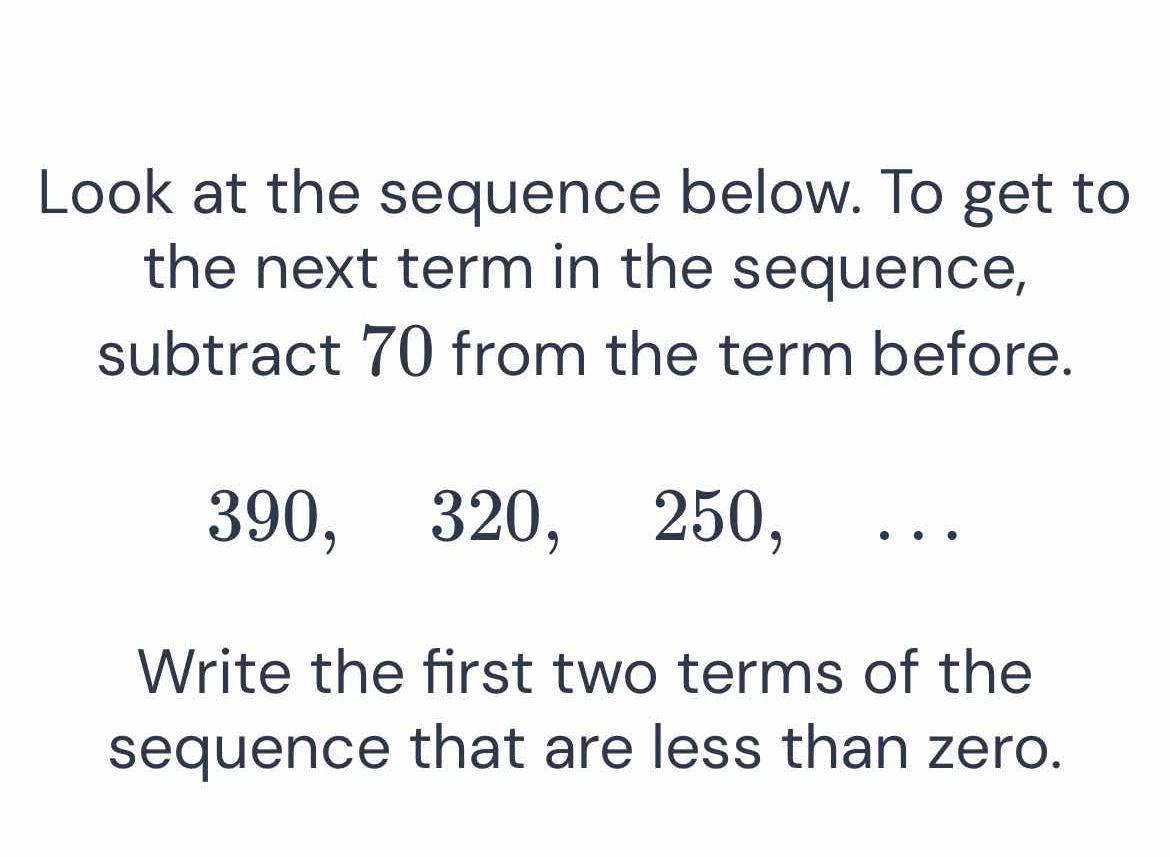Look at the sequence below. To get to the next term in the sequence, subtract 70 from the term before. Write the first two terms of the sequence that are less than zero.

Understand the Problem
The question is asking us to determine the first two terms in a numerical sequence that are less than zero. The sequence begins at 390 and each term is obtained by subtracting 70 from the previous term. We will calculate subsequent terms until we identify the first two that are negative.
Answer
The first two terms are $-30$ and $-100$.
Answer for screen readers
The first two terms of the sequence that are less than zero are $-30$ and $-100$.
Steps to Solve
-
Identify the sequence rule
We start with the first term of 390 and subtract 70 to find the next term. The rule for the sequence is:
$$ a_n = a_{n-1} - 70 $$ -
Calculate subsequent terms
Let's compute a few terms of the sequence:
- First term: $a_1 = 390$
- Second term: $a_2 = 390 - 70 = 320$
- Third term: $a_3 = 320 - 70 = 250$
- Fourth term: $a_4 = 250 - 70 = 180$
- Fifth term: $a_5 = 180 - 70 = 110$
- Sixth term: $a_6 = 110 - 70 = 40$
- Seventh term: $a_7 = 40 - 70 = -30$
- Eighth term: $a_8 = -30 - 70 = -100$
-
Identify the negative terms
The first two terms in the sequence that are less than zero are:
- $a_7 = -30$
- $a_8 = -100$
The first two terms of the sequence that are less than zero are $-30$ and $-100$.
More Information
In this sequence, we continuously subtract 70, which illustrates linear sequences in mathematics. This pattern helps us predict future values in a consistent manner.
Tips
Common mistakes include:
- Forgetting to keep subtracting the 70 correctly for each subsequent term.
- Stopping calculations prematurely without checking for enough negative terms.
AI-generated content may contain errors. Please verify critical information